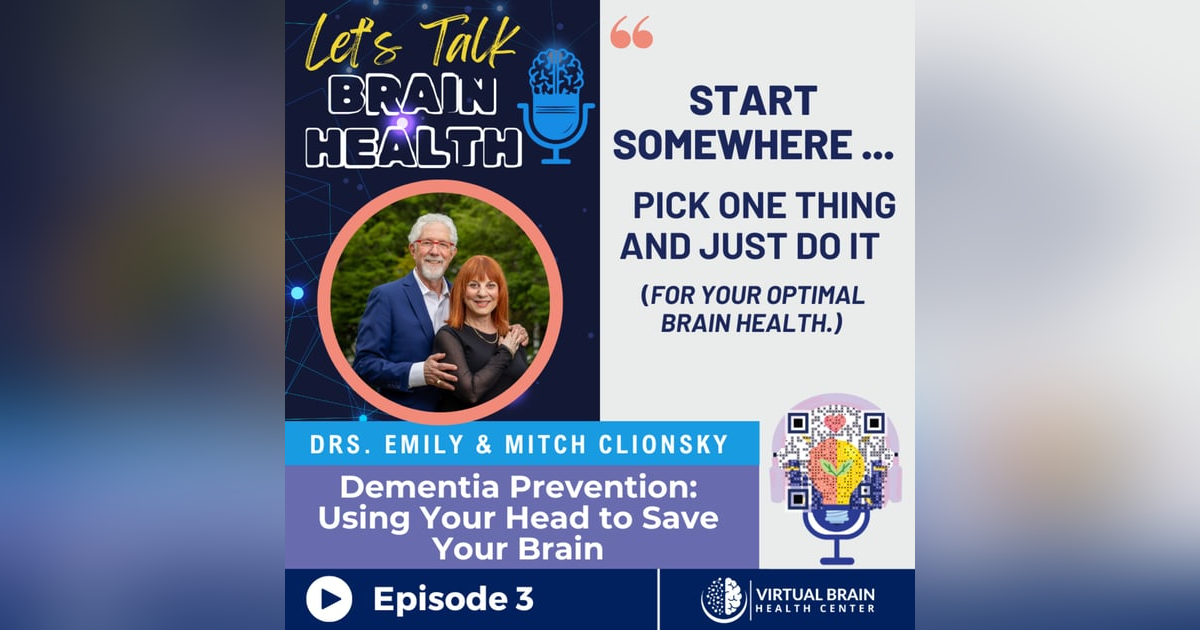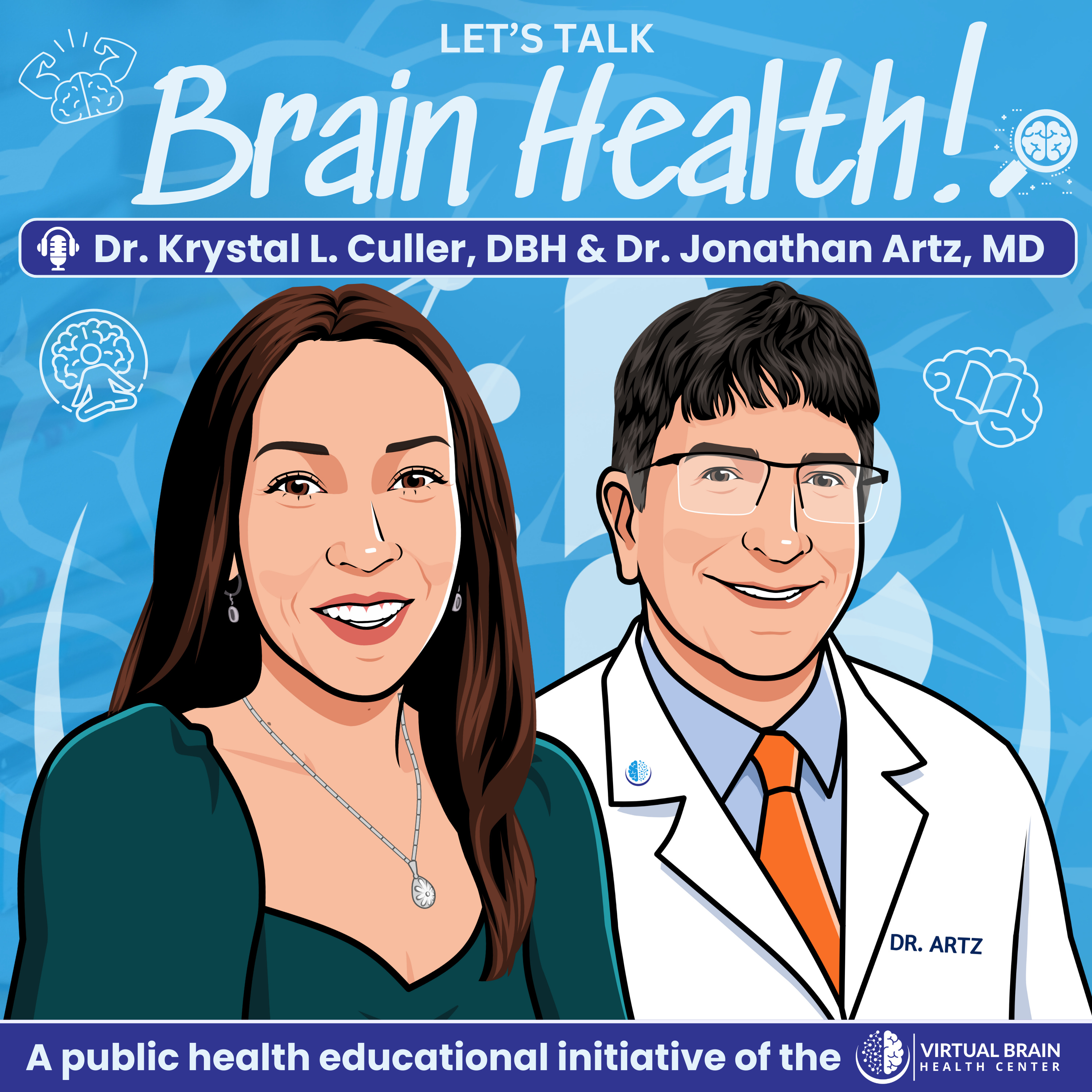Use Your Head to Save Your Brain with Drs. Emily & Mitch Clionsky

In this podcast episode, we welcome a clinician couple Dr. Emily Clionsky, MD and Dr. Mitch Clionsky, Ph.D. to discuss brain health and dementia prevention. The couple shared their comprehensive model for dementia risk reduction based on scientific research and their years in clinical practice. They showcased in their book "Dementia Prevention: Using Your Head to Save Your Brain."
Dr. Emily Clionsky is a physician who combines internal medicine, psychiatry, and neurology to focus exclusively on patients with dementia and cognitive impairment. Dr. Mitchell Clionsky is a board-certified neuropsychologist with more than 40 years of clinical experience in hospital and outpatient settings. The conversation delves into their expertise and journey.
Emily shares her unique path to becoming a doctor after a car accident that led to a career change. She emphasizes the importance of ongoing education and keeping the brain active. Mitch highlights his background and work, particularly in neuropsychology, dementia, and concussions. He mentions their parallel clinical practices and how they work together.
The conversation then shifts to dementia prevention. Emily and Mitch’s book focuses on actionable steps for reducing dementia risk at any age. They discuss the shift in attitude towards dementia prevention and how scientific evidence supports the possibility of preventing one out of two cases of dementia. They mention studies like the Lancet Commission and the Health and Retirement Study that underscore the potential for reducing dementia risk.
The hosts stress the significance of change and offer advice for initiating small, sustainable changes to improve brain health. They mention the importance of involving family members in assessments and highlight the benefits of considering a person's overall health and lifestyle. Emily and Mitch share their dementia prevention checklist, emphasizing the need for regular checkups and certain lab tests to monitor brain health.
They suggest starting with achievable goals and building success over time. Both Emily and Mitch share their non-negotiable for their personal brain health and wellness– tune in to find out! (Surprise, it is the same tip!) Mitch recommends brisk walking as an accessible exercise. They emphasize practicing what they preach and share their personal experiences in optimizing brain health.
The episode concludes with the hosts urging listeners to take action, emphasizing the positive impact small changes can make. The hosts echo Clionsky’s tagline: "May we all use our heads to save our brains." The episode highlights that dementia prevention is a journey accessible to everyone, encouraging proactive steps for better brain health.
Website: braindoc.com
View Dementia Checklist: https://braindoc.com/checklist-intro/
--- Support this podcast: https://podcasters.spotify.com/pod/show/virtualbrainhealthcenter/support

Physician & Clinical Neuropsychologist
Dr. Emily Clionsky, M.D.
Dr. Emily Clionsky is physician who combines internal medicine, psychiatry, and neurology to focus exclusively on patients with dementia and cognitive impairmentSince October 2007 when she completed her last residency at Dartmouth Hitchcock Medical Center, she has evaluated and treated more than 3,000 patients with cognitive impairment who have been referred by primary care physicians and specialists in the community.
Her goal is to stabilize and improve their cognition and functional status. The initial comprehensive medical evaluation identifies all medical co-morbidities that cause or contribute to cognitive loss. Treating these underlying conditions reestablishes the patient’s physical “foundation.” She has found that memory-stabilizing medicines and treatment of the patient’s other medical conditions often stabilize and can improve the patient’s ability to think.
The unique protocols she has formulated include measures to ensure consistent adherence to the treatment plan, by the patient and their families. Her extensive patient database demonstrates significant positive outcomes for disease states that typically show decline. She believes that clinical research enriches treatment and that patient care informs research. Her specific research interests include the relationship of hypoxia and dementia and neuroprotective strategies.
Integral to Dr. Clionsky’s practice is her ability to measure a patient’s cognition within the course of a regular office visit using the Memory Orientation Screening Test. She can … Read More







